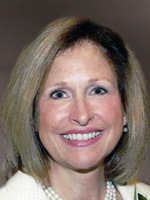President’s Message: An Ethical Foundation
“Ethics is knowing the difference between what you have a right to do and what is right to do.”- Potter Stewart

Can one teach ethics or do humans possess an inherent sense of right and wrong from birth? This has been the subject of many intellectual exercises, and the conclusions vary. Most believe that your ethical foundation is formed early in life and it is molded thereafter by many factors. These can include life experiences, parental teachings, religious beliefs and social interactions and influences. It is probable that by the time we enter college or professional school the previously mentioned influences have formed our system of ethics but is that system immutable? Many contend that your moral fiber is impressionable when it comes to entering a new professional culture. This belief has led to the teaching of ethics in medical, law and dental schools with the intent of imparting specific principles that those professions have determined are necessary for ethical practice. Such principles generally are established and enforced by associations. The American Dental Association Code of Ethics is intended to guide dental practitioners in the ethical practice of dentistry. Extrinsic professional entities also have access to our students and new dentists and can have a large impact on the professional ethics they develop.
But what if the extrinsic professional influences are less than ethical? We know that peer group interaction does lead to a casual social consensus on a code of ethics. And a peer group can be defined as a primary group of people who have similar interests. There are many peer groups in dentistry and endodontics. Most have high ethical standards while some seek to affect a cultural change within our profession that may not be in the patient’s best interest. I recently was made aware of a publication where the author encouraged young general dentists to not refer complex cases for the sake of keeping the revenue in their practice. The author suggested that not only should this be common practice but that the practitioner was stupid to refer. The author advised that in the event that the operator’s skill set was not adequate and the procedure was botched, the general dentist should then lie to the patient and state that the tooth just could not be saved. He seemed to delight in the fact that this would lead to another procedure for which the dentist could collect a fee. It is not infrequent that speakers on the lecture circuit impart the same advice. From a business perspective it may appear sound but from an ethical perspective that guidance is morally corrupt. It places the dentist’s financial welfare over the welfare of the patient. In reference to this particular publication the AAE wrote a letter to the ADA and the American College of Dentists objecting to the author’s sentiments and noting that the recommendations in the article conflict with the ADA Code of Professional Conduct.
I would like to see both organizations step up and speak out against representations that diminish the ethics of the profession.
Great philosophers like Aristotle, Socrates and Kant describe ethical systems that are either rule-based or outcome-based. Basing your ethical behavior on the Ten Commandments or the Golden Rule would be an example of rule-based ethics. The physician’s credo of “do no harm” would be an example of outcome-based ethics. I would posit that most of us follow ethical standards based on both systems. Performing procedures for which you are not adequately trained solely for monetary gain violates both rule-based and outcome-based ethical tenets in dentistry. The negative pressure exerted by high student debt and the desire to elevate one’s lifestyle must be resisted at all costs and we must always take the higher road. The outcome-based belief of Karma says you will be rewarded for it!
During my tenure as your president, every President’s Message has addressed concerns that have ethical underpinnings. Practicing beyond or outside of our scope of training, allowing student debt to influence the type of care we render, pressuring young practitioners to produce numbers rather than quality and our attention to how we teach our specialty in a way that we insure
“safe starters” are all examples of moral dilemmas we have as health care providers and teachers. It is our responsibility to confront these dilemmas directly and unabashedly. We devote so much time and resources to educating our young clinicians on science and technology; we can’t forget or downplay the importance of teaching them how to morally execute their careers in the best interest of the patient, always. I am hopeful that this could be included in some of our CE offerings in the future. I also hope that we can raise public awareness regarding the ethical delivery of endodontic care.
This is my last message as your president. I have been privileged to serve you and I thank you for the opportunity. Your leaders coming behind me are strong and will no doubt continue to carry the torch for endodontics. The landscape of dental practice is changing and the AAE will be ever vigilant to make sure that any changes are in the best interest of the people we serve: the patient. And as most of us know, if you take good care of your patients, you will be blessed with a rewarding professional life. I want to thank the AAE staff. They work tirelessly to produce all of the services that help us in our practices and training institutions. They also work closely with your leadership to insure that the AAE stays true to our values and mission. See you all in New Orleans.




